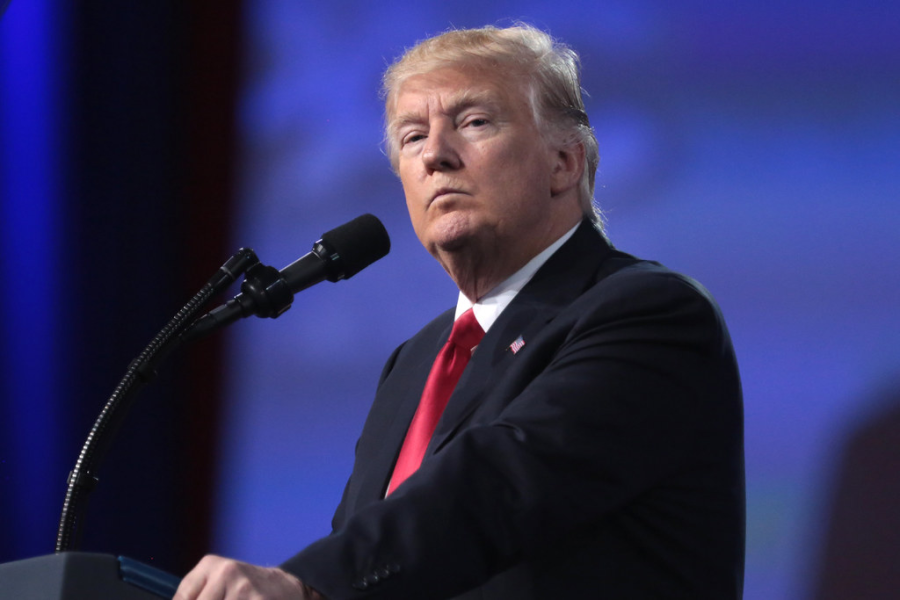Trump indicted and charged with 34 felonies
CWU Political Science professor breaks down what this might mean
April 5, 2023
Former President Donald Trump was charged with 34 felony counts of falsifying business records on Tuesday, April 4. Trump, who said 10 words in total during the entire proceeding according to AP News, pleaded not guilty. According to Reuters, all of the felonies combined could lead to a prison sentence of over 100 years for Trump.
This is the first time a former president has been indicted and charged with felonies.
The next hearing, which will look over new evidence found between now and then, will take place on Dec. 4. The judge has asked Trump to stay off of social media until the next court date.
The indictment came from a Manhattan grand jury, and involved the money paid by former Trump lawyer Micheal Cohen in the amount of $130,000 in return for Stormy Daniels’s silence on her bedroom encounter with the former president.
According to MSNBC, the judge had to issue a protective order regarding discovery materials, meaning that any information gathered for further use in the court proceedings will be held confidential.
MSNBC reported that Judge Merchan said Trump could face immediate imprisonment if he continued his “concerning rhetoric.” This was in regard to emails and social media posts that Trump had recently made directed at the proceeding and those involved in the trial. These social media posts were described in the article as “destructive and threatening.” One cited post included an edited photo of Trump hitting district attorney Alvin Bragg’s head with a baseball bat.
Todd Schaefer, political science department chair at CWU, said this case has the potential to be the first of many criminal charges for Trump to face.
“Yeah, it could be [the first of many cases],” Schaefer said. “On the other hand, he could ski away from the avalanche.”
Schaefer referenced other ongoing probes into Trump’s business dealings, his involvement with the Jan. 6 insurrection, his involvement in the 2020 elections and claims of fraud and election interference in Georgia, and missing and inconsistent tax records.
Schaefer said he thinks that the grand jury has to have a strong case if they even considered charging it against him in the first place, despite some prominent figures alleging they do not have a strong enough case.
“If they went to the trouble of going to grand jury, they must have a solid case,” Schaefer said. “Otherwise they would have settled out of court.”
Schaefer said that he is on the fence on whether or not this will impact Trump’s performance in the upcoming 2024 election, where Trump is anticipated to run again as a candidate.
According to Schaefer, this could strengthen his Republican base, but may hurt him when it comes to nationwide voting.
“So far it has helped him, because he can claim he’s been victimized, so I’ve seen his poll numbers go up,” Schaefer said. “In the short run it will help him, in the long run, if he’s actually convicted, obviously it will not.”
Trump returned home to Mar a Lago to give a speech directly after the arraignment, where he talked briefly about the case before listing off other grievances, including the topic of election fraud and Hunter Biden’s laptop.

